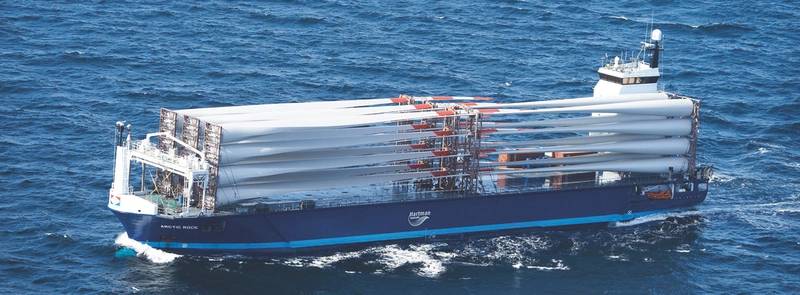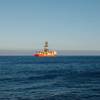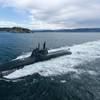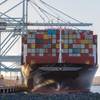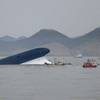German Shipowners Get Back to Basics
The situation for the shipping companies based in Germany has been, much like the rest of the world in 2017, mostly tight. Currently, the German shipping companies are undergoing changes against this background. They are concentrating more and more on their core competences. Maritime Reporter & Engineering News' man in Germany, Peter Pospiech, recently talked to Alfred Hartmann, President of the VDR (Association of German Shipowners), for his exclusive insights on the size, shape and direction of German shipowners.
Mr. Hartmann, in 2017 the situation for the German Shipping companies has been mostly tight. What does this mean for the German maritime navigation?
If we are talking about the market situation in shipping the focus is mainly on container traffic – about freight rates, merger and alliances. There is no doubt about that container transport is an important part of the branch – but this is not the whole shipping business. If the freight rates for the container transport getting better, it can look totally different in the tanker, bulker or offshore vessels. Even in the container shipping existing not only lines, but also a lot of shipowners who rent their ships to others – and facing momentarily a growing market power of the lines. The total picture of all vessels and owners based in Germany is mostly tight – particularly for smaller companies. During the last five years we lost more than 1,200 vessels. These vessels are not gone from the market, but they keep going with favorable capital costs and, based on this, increase the competitive pressure. Not only jobs on board will be lost, but also increasing the job employment losses in the shipping companies.
With this we estimate that the German-location will lose high-grade know-how and economic significance.
How do you assess this difficult situation related to the growing requirements with regard to environmental and climate protection for shipowners?
In this difficult situation companies facing new burden because of the increasing requirements to environmental and climate protection. We would like to operate our vessels more cleaner and with fewer emissions. But environmental protection does not come for free. An actual example is the ballast- water convention which came into force in September 2017. In future all merchant vessels must treat their ballast water on board in special systems. With this microorganism can’t anymore spread in alien maritime areas.
Basically it’s a sensible idea but on the cost with substantial investments and implementation problems. For the time being the ballast water convention is the most expensive environmental regulation which the shipping industry had to shoulder. In the coming years it will become increasingly clear if all owners will be able to bear the investment of up to two millions EURO per vessel. Otherwise the convention could be an involuntary scrapping program.
Besides water cleanliness, it is also about clean air and less greenhouse gases. German shipowners appreciate that the community of states see the International Maritime Organization (IMO) in a leadership role to push the subject environmental protection. We stay behind the IMO global timetable after which all ships, with beginning of 2019, collect their CO2-emissions and report them via the flag states. These will then be used to derive targets and measures – worldwide and binding for all market players.
Vessels already today feature the best climate balance sheet compared to all transport vehicles. It would be an important climate protection contribution heavy traffic to shift from road to ships, wherever it can – particularly in the European short sea shipping.
During the last years shipping invested a lot in more efficient machinery and modern vessel design. By larger and more efficient vessels the CO2-footprint of transported goods becomes continuously smaller.
To get by the end of the century a climate-neutral sea transport, shipping needs to get a further innovation offensive in research and development, particularly with regard to alternative fuels and propulsion systems. The worldwide governments must pursue with the branch and provide financial resources to enforce the necessary technological revolution.
Beside the CO2 subject our shipping wants to contribute also in other air pollutants. It is our understanding that we use in our vessels only fuels which comply with the statutory regulations. It was during the 1980s, when the federal government with a support program pushed the change from heavy fuel to diesel fuel. Since 2009 shipping is again on the course away from conventional heavy fuel. In 2020 the limit value will be lowered by around 90 percent – and after this to 0.5 percent. In the high-traffic emission control areas stringent sulphur limit values are already in force. First special areas exist for nitrogen oxide. With these ECAs shipping contributes to lower the burden by ship’s exhaust gases.
Because of its excellent environmental balance shipping focuses more and more on LNG.
But ships conversions or new builds, which are able to use LNG, are complex and expensive. Compared to conventional fuels ship’s engines, storage tanks and supply lines one can calculate with additional costs of around 20 to 30 percent. That’s the reason why we appreciate the support program. It helps the German shipowners to bear the considerable additional costs – and not to forget: it’s a true win for the environment
A great help was the LNG support program. Which further measures are necessary to strengthen the German shipping location in the long term?
The LNG support program was one of the most important political measures for the German shipping location. This also includes realignment for training and employment. The German flag is more attractive than ever: just to mention the flexible specifications for crewing, the refunding to employers social security contributions and the full wage tax deduction. What’s more is the educational support by the foundation “Schifffahrtsstandort Deutschland” – this is paid by the vessel owners.
In the course of dealing with the significant market crisis we could stabilize the training figures and stop the strong decline in shipping employment. These measures are certainly not all to strengthen the German shipping location. A challenge is the ship financing. Domestic banks as partners have broken away. German shipowners are looking for new partners in foreign countries.
The structural changes in the global market require from the maritime economy a high degree of adaptability. What, in your opinion, must be done in order to meet these demands?
German vessels have always been on the move globally. But now also the companies are gaining ground – not only at financing. The same trend we see at the management. Big corporations fill their leading positions much more often with foreign manager. The more international the shipping companies management is positioned, the less the company depends on the German location.
Also, typical German company structures are in a change. Project planning, financing, property, charter, crewing and operating are done less often from a single source.
In fact, owner focus on their core competences. German shipping companies enjoy worldwide a good reputation with the management of vessels – so that reputable foreign companies give their vessels for operation at the German location. The quality is right, but the price pressure in Germany is huge.
The new extended business areas of our companies make it also necessary to think about further developments of the special conditions. That includes an extended scope of the tonnage tax – for instance for services in the future market offshore wind for the so called third party management – the operation for third parties, without having properties of the vessel.
Finally the location needs a comprehensive strategy to keep the owners as a central part of the maritime cluster in Germany. If we lose our skills to operate vessels, we also will lose successive the value and innovation strength.
On the other hand we have, here in Germany, with the right policies great chances.
Because by using the potential of digitalization and belonging furthermore to the forerunner in green shipping, the location is well positioned for the future international competition.
The German Maritime Center and the Digital Hub Logistic in Hamburg as well as the Maritime Competence Center MARIKO in Leer are only a few examples of many of our strong maritime cluster. We must strengthen in cooperation our know-how of our shipping companies, the universities and research facilities as well as the other maritime stakeholder. The political framework must be further adjusted. With all this shipping companies in Germany will be successful in the future and secure jobs and value.
The maritime economy has just outpaced a crisis decade. When does the economy pick up from your point of view?
The shipping companies made an important contribution from the supply side. More and more older ships are getting scrapped. Relatively few new vessels have been ordered lately, especially smaller units. We note that freight rates during the last months getting slightly better. Whether this will be sufficient, we will see. But the tendency is there.
(As published in the May 2018 edition of Maritime Reporter & Engineering News)





